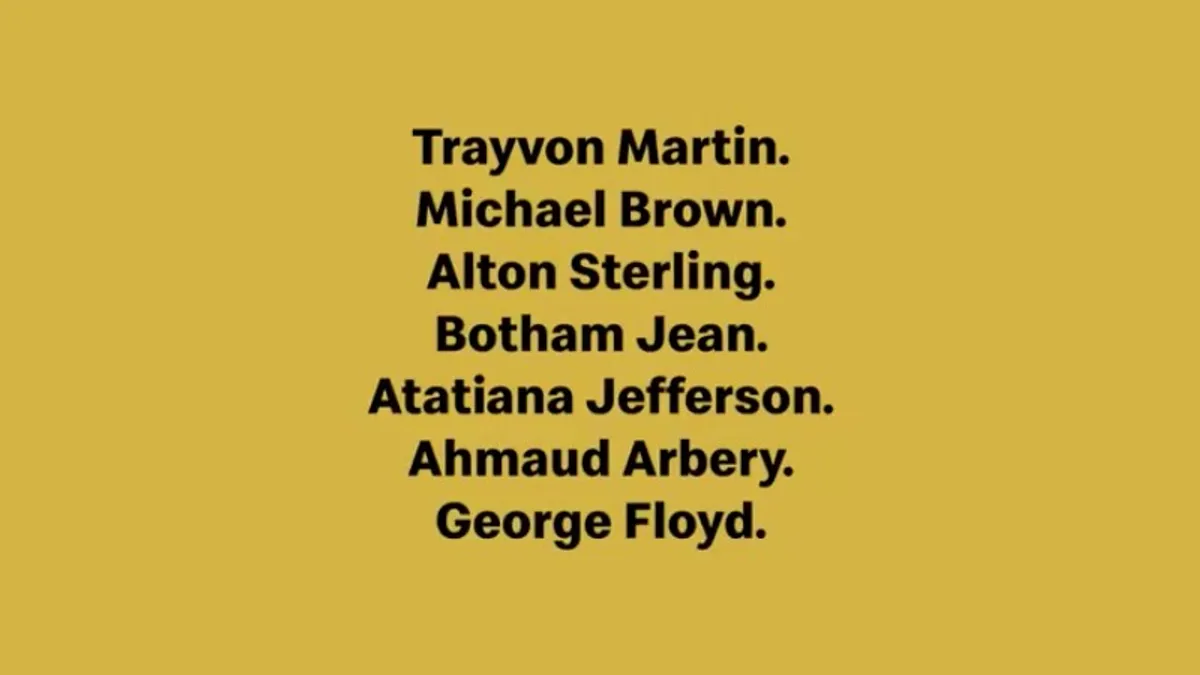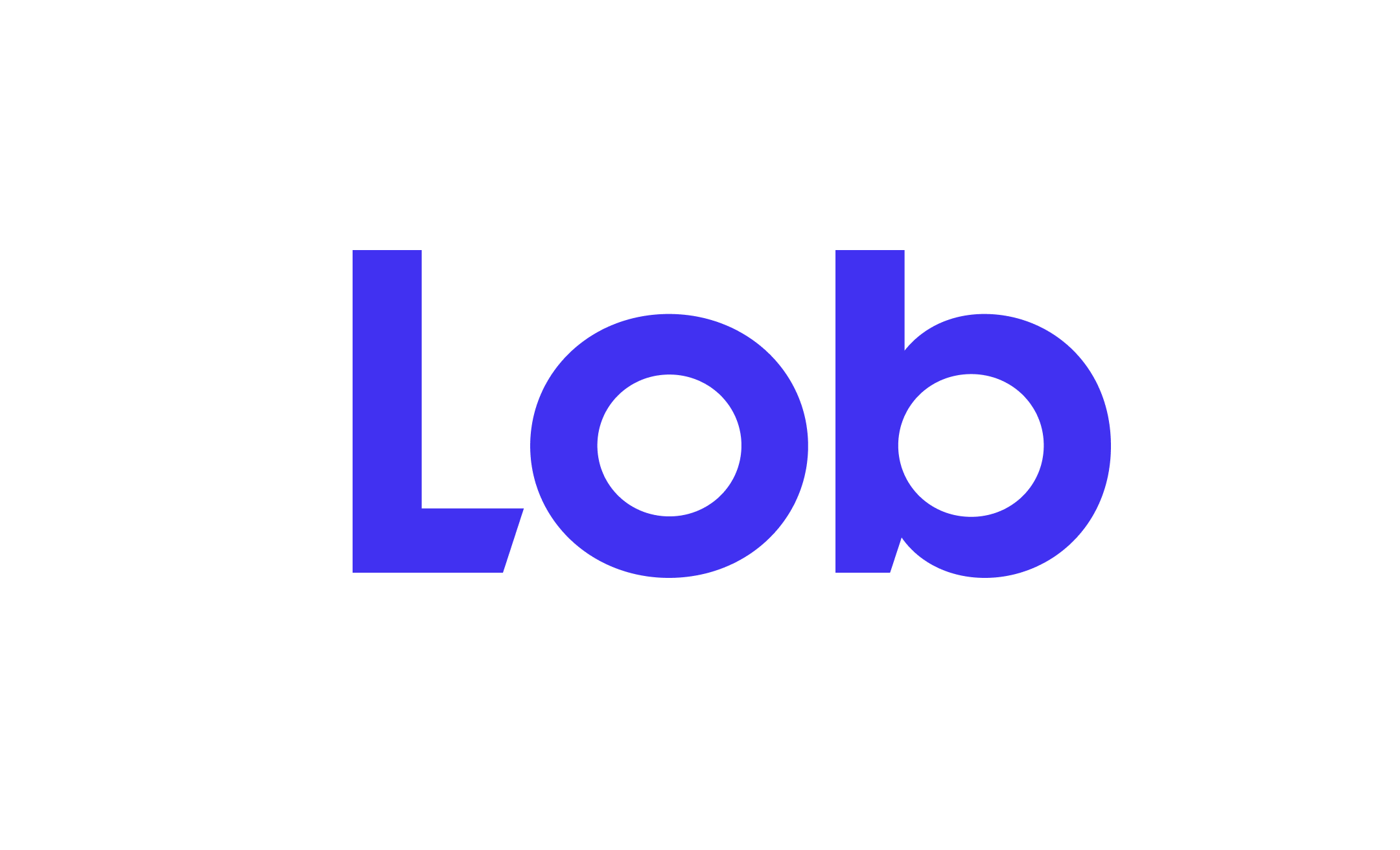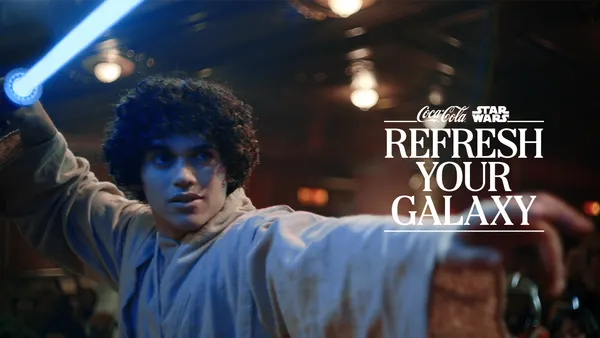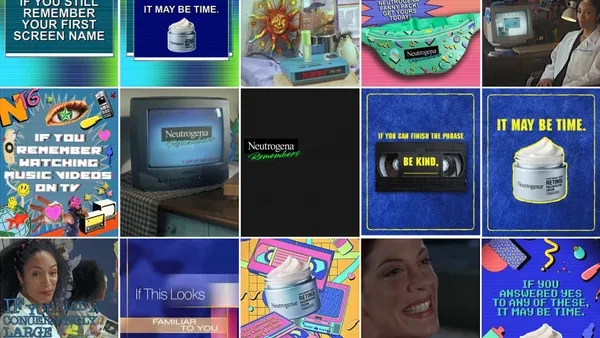Dive Brief:
- McDonald's "One of Us" ad and Procter & Gamble's "The Choice" ads in support of the Black Lives Matters (BLM) movement were found to be in the "danger zone" of being viewed as more exploitative than empowering, according to a recent Ace Metrix study shared with Marketing Dive.
- McDonald's ad named recent Black victims of violence, including George Floyd, and the message was seen as the single best thing about the ad by 57% of viewers. Yet, the ad earned the highest exploit score from consumers that disagreed with the stance or those that support the cause but found the timing of the ad to be insincere. The ad earned a 2.9 empower score and a 4 exploit score, according to Ace Metrix.
- P&G's "The Choice" ad earned a 1.2 empower score but a 3.7 exploit score for being viewed as negative and divisive. Ace Metrix also looked at recent ads that supported the social justice movement from brands including YouTube, Disney and JPMorgan Chase.
Dive Insight:
When advertisers tread into strongly emotional territories, like the one right now surrounding the Black Lives Matter movement, they face challenges. Even if viewers share the same viewpoint as the advertiser, creating marketing messages around social movements can be wrought with landmines as marketers deal with the challenges of using homegrown social movements as a brand platform.
Even Nike's "For Once, Don't Do It" ad, which was seen as empowering by 60% of viewers, was also seen as slightly more exploitative than the brand's other ads. "For Once, Don't Do It" was the first major ad to drop in the wake of protests in response to the murder of George Floyd by Minneapolis police.
But while Nike's ad called on people not to "pretend there is not a problem in America" and not to turn their backs on fighting racism by inverting its Just Do It slogan, McDonald's adopted the language of the protestors in its ad. McDonald's used the names of seven Black people who have been killed by police or others that are often written on signs at protests, an approach that broke through in terms of making viewers feel empowered.
However, when brands adopt language from social movements, they wade into divisive territory. Even if people support those causes, they may perceive that brands are exploiting real issues to help build their brand perception. Following the release of the McDonald's ad, the fast food chain was called out by NAACP for not supporting workers, many of whom are Black and who protested for better protections at work against COVID-19. By not supporting Black lives who are suffering from the disease at rates that are statistically greater than other groups of people, the brand is seen by some as jumping on the bandwagon when it is popular to do so, rather than affecting real change.
"McDonald's waited until it was more socially acceptable with mainstream America to admit that they support Black Lives Matter," wrote one 21-35 year old female supporter of BLM interviewed by Ace Metrix. "The message would have been more powerful when Kaepernick was getting slammed for just kneeling."
P&G's ad nods to the Black Lives Matter movement and emphasizes that white individuals not personally being racist is not enough to create real change. It was perceived as being heavy-handed by some viewers.
The brand failed to make people feel empowered and instead came across as blaming without offering up real solutions. Instead of showing how the brand was helping to fight against systemic racism, the ad leaves the very difficult problem up to viewers.
"This is why we have division," wrote one 50+ male BLM supporter surveyed by Ace Metrix.











